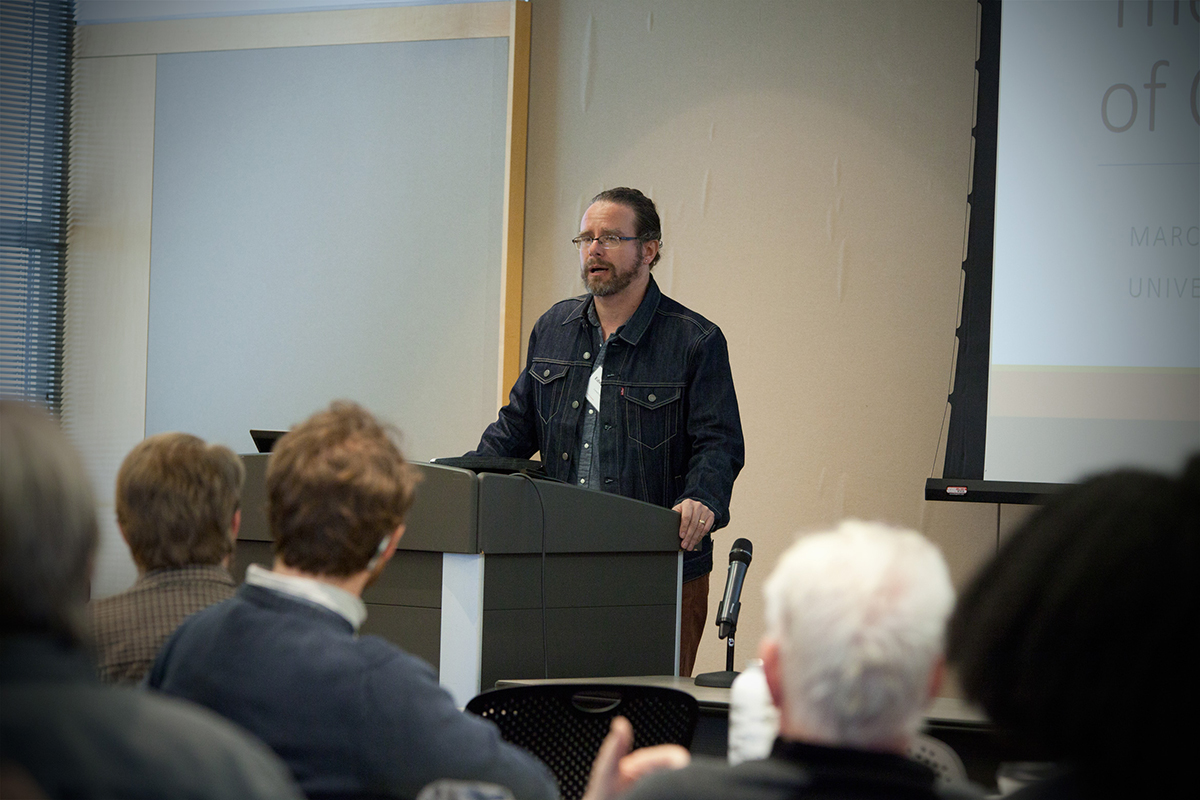Conference examines the histories of capitalism
By Linda B. Glaser

More than 100 scholars from around the country shared their research and offered new perspectives at the Histories of Capitalism 2.0 conference, held at Cornell Sept. 29-Oct. 1.
The event built on last year’s conference (the first for the field), highlighting the diversity of the histories of capitalism(s) through a variety of perspectives – intellectual, gender, environmental history, as well as the history of science and technology. Historically oriented economists, legal scholars, and political theorists also participated in the conference.
“We can’t talk about income inequality, trade or employment practices around the world without understanding how capitalism has evolved over time; and we can’t possibly understand the increasingly complicated structures of our political and financial institutions and our global economy without a clear understanding of capitalism’s origins and influence,” said Gretchen Ritter '83, the Harold Tanner Dean of Arts and Sciences.
Ritter stressed how critical Cornell’s interdisciplinary collaboration is to understanding the history of capitalism, “because the study of history rests firmly at the intersection of the social sciences and the humanities.”
As Lawrence Glickman, the Stephen and Evalyn Milman Professor of American Studies in the Department of History in the College of Arts and Sciences, noted, “Cornell was doing history of capitalism before it was ‘cool.’” Glickman co-organized the conference with Louis Hyman, associate professor and director of the ILR School’s Institute for Workplace Studies.
Plenary speakers Kirsten Mullen and William “Sandy” Darity of Duke University addressed the topic of reparations for African-Americans. They said the acronym in the title of their presentation, “The ARC of Justice: Reparations for African Americans,” stood for three essential terms for reparations: apology, restitution and closure.
Mullen outlined how even whites who didn’t own slaves before the Civil War profited from slavery. “We and others contend that slavery was not confined to the South and that the economic benefits of slavery were not confined to the South,” she said.
Darity said rather than basing his argument for reparations on slavery itself, he bases it on the injustices since the end of slavery. He offered an overview of those injustices, including political oppression, the Jim Crow system, lynchings, racialized eugenics, forced sterilizations and school segregation.
The conference included non-U.S. and global perspectives as well, such as the “China and Japan” panel, which included a presentation by Victor Seow, assistant professor of history, on “Manufacturing Revolutions: the Rise and Decline of a Chinese Automobile City.”
At the panel on slaves in the “Domination and Resistance” track of the conference, Ernesto Bassi, assistant professor of history, examined slavery and the sugar boom in the Caribbean as a means of understanding global capitalism. He emphasized the ways in which places that did not experience a sugar revolution can contribute to what he called “a truly global history of the rise of capitalism.”
Bassi said although most scholars focus on Cuba as the global sugar power, Cuban planters did not achieve dominance in a field lacking competitors. The focus on one place, he said, “clouds historians’ ability to see what was happening elsewhere.”
Gregg Lightfoot, M.A. ’08, Ph.D. ’15, examined what the institution of slavery meant for Cubans and how it paid dividends for whites, as well as the reasons for Cuba’s particularly violent form of slavery.
The University of Virginia’s Justene Hill, who focused on U.S. slavery, said, “Looking at how black slaves understood their relationship to money can shed light on inequality today.”
Commentator Ed Baptist, Cornell professor of history, concluded the panel by noting that “the unhappiness of society” is the engine that drives change.
“Most capitalist societies are profoundly unequal and become more so over time,” he said. “The sense of impending or existing unhappiness can be a driver of change, but can also be a justification for making others unhappy to prevent your own unhappiness.”
Linda B. Glaser is a staff writer for the College of Arts and Sciences.
Media Contact
Get Cornell news delivered right to your inbox.
Subscribe